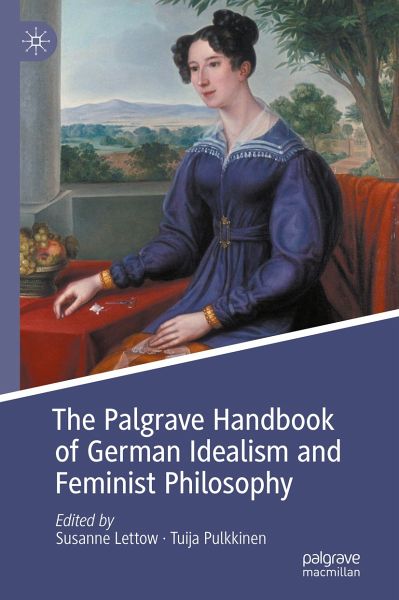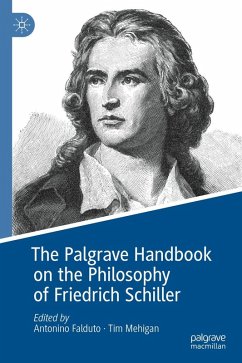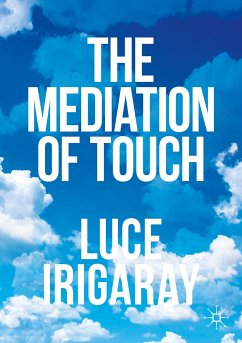
The Palgrave Handbook of German Idealism and Feminist Philosophy (eBook, PDF)
Versandkostenfrei!
Sofort per Download lieferbar
136,95 €
inkl. MwSt.
Weitere Ausgaben:

PAYBACK Punkte
68 °P sammeln!
This book gives a comprehensive overview of the ways in which the relation between German Idealism and feminist philosophy has been explored. It demonstrates the significance of German Idealism for feminist philosophy, and simultaneously brings out the relevance of feminist readings and interpretations for a critical understanding of German Idealism.Key Features:. Presents original work on the German Idealists and considers their legacy within feminist thought from different philosophical perspectives. . Incorporates perspectives from queer theory, new materialism and critical philosophy of ra...
This book gives a comprehensive overview of the ways in which the relation between German Idealism and feminist philosophy has been explored. It demonstrates the significance of German Idealism for feminist philosophy, and simultaneously brings out the relevance of feminist readings and interpretations for a critical understanding of German Idealism.
Key Features:
. Presents original work on the German Idealists and considers their legacy within feminist thought from different philosophical perspectives.
. Incorporates perspectives from queer theory, new materialism and critical philosophy of race, and so explores German Idealism through the subversion and transformation of meanings and conceptual arrangements.
. Challenges the epistemic boundaries of philosophy by engaging the thought of women contemporary with the German Idealists such as Bettina von Arnim and Karoline von Günderrode.
. Places the work of the German Idealists on gender, sexuality, marriage and family within the wider contexts of colonialism and European nation building.
. Considers how several key concepts of German Idealism (such as subject, reason, enlightenment, autonomy and the sublime) have been central targets of feminist theory.
. Includes a Black feminist critique of Kantian universalism.
Fully reflecting the diversity that characterizes feminist thinking today, The Palgrave Handbook of German Idealism and Feminist Philosophy is essential reading for scholars and graduate students of German idealism, feminist philosophy and feminist theory.
Chapter(s) "The Taxonomy of 'Race' and the Anthropology of Sex: Conceptual Determination and Social Presumption in Kant" is/are available open access under a Creative Commons Attribution 4.0 International License via link.springer.com.
Key Features:
. Presents original work on the German Idealists and considers their legacy within feminist thought from different philosophical perspectives.
. Incorporates perspectives from queer theory, new materialism and critical philosophy of race, and so explores German Idealism through the subversion and transformation of meanings and conceptual arrangements.
. Challenges the epistemic boundaries of philosophy by engaging the thought of women contemporary with the German Idealists such as Bettina von Arnim and Karoline von Günderrode.
. Places the work of the German Idealists on gender, sexuality, marriage and family within the wider contexts of colonialism and European nation building.
. Considers how several key concepts of German Idealism (such as subject, reason, enlightenment, autonomy and the sublime) have been central targets of feminist theory.
. Includes a Black feminist critique of Kantian universalism.
Fully reflecting the diversity that characterizes feminist thinking today, The Palgrave Handbook of German Idealism and Feminist Philosophy is essential reading for scholars and graduate students of German idealism, feminist philosophy and feminist theory.
Chapter(s) "The Taxonomy of 'Race' and the Anthropology of Sex: Conceptual Determination and Social Presumption in Kant" is/are available open access under a Creative Commons Attribution 4.0 International License via link.springer.com.
Dieser Download kann aus rechtlichen Gründen nur mit Rechnungsadresse in A, B, BG, CY, CZ, D, DK, EW, E, FIN, F, GR, HR, H, IRL, I, LT, L, LR, M, NL, PL, P, R, S, SLO, SK ausgeliefert werden.












